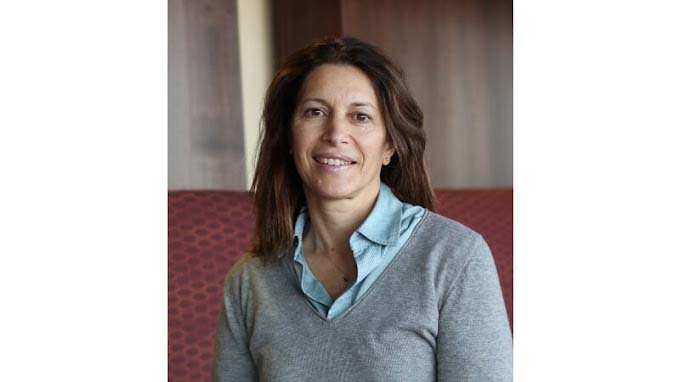Doctor Paula Amato,
Professor of Obstetrics and Gynecology
at the OHSU School of Medicine in Oregon
Menopause and Fertility Treatment
Popular culture treats menopause like a hard deadline that ends fertility beyond a certain age for people who can give birth. As with many things about how our bodies change as we age, menopause is misunderstood and overly generalized. To counter some of the biggest misperceptions, ARC Fertility spoke to Doctor Paula Amato, Professor of Obstetrics and Gynecology at the OHSU School of Medicine in Oregon. Dr. Amato discusses the effects of menopause, and the ways in which fertility treatment benefits can help childbearing parents pursue their family-building goals at any age.
The Average Age of Menopause
People are often concerned about when menopause starts and what this means for their family goals. “The average age of menopause in the United States is around 50, but some people start earlier and some a little bit later. Approximately 1% of women undergo menopause prematurely, that is before age 40.” says Dr. Amato. “It doesn’t happen overnight but spreads across a process we call perimenopause when the symptoms tend to be most disruptive. Common symptoms like hot flushes and vaginal dryness can start several years before menopause, but there are good treatments available.”
Fertility and Egg Quality
Menopause does generally mean a drop-off in fertility because it coincides with a drop-off in the number and quality of an individual’s eggs. But this decline can happen early. “If you start to run out of eggs earlier than average, you could have fertility issues. It’s important to keep in mind that the decline in fertility begins well before actual menopause. – at least a decade earlier Though you may be ovulating every month, the quality of those eggs decreases over time, making it harder to get pregnant. A woman’s age is the most important factor in terms of chances of conceiving in any given month”
Fertility Preservation and Egg Freezing
While medications can treat symptoms like hot flashes and other side effects of menopause, countering the fertility drawbacks of this natural process is an ongoing struggle for medical researchers. Dr. Amato says, “People are trying to extend the reproductive lifespan because women are waiting longer to have children as they pursue careers and education. But the only effective strategy thus far is freezing your eggs when you’re younger to use when you’re older or using donor eggs.”
The Process of Egg Freezing
To freeze their eggs, patients undergo a process called ovarian stimulation and egg retrieval. According to Dr. Amato, “It’s a very common treatment available for patients suffering from infertility due to age or other causes. The patient takes hormone injections for two weeks to stimulate her ovaries and help eggs grow, which are removed with a small surgical procedure. They can be frozen unfertilized or fertilized with partner or donor sperm. The success rate with embryo freezing is a little bit higher than with egg freezing, but success overall has improved substantially in the last several years.”
Pregnancy Risks and Age
While it is theoretically possible to carry a pregnancy at any age, it becomes less advisable as women get older. “Complications from pregnancy increase as women age. We don’t recommend you wait too long to carry a pregnancy, as you would be putting yourself at risk along with your child.” This need not mean the end of one’s fertility journey. “Another option particularly for women older than 50, is to utilize a gestational carrier to carry the pregnancy, making it possible to have a child using your previously frozen eggs or donor eggs.”
Menopause and Hormone Therapy
Menopause today is much more a part of everyday life than when lifespans were shorter. “Life expectancy used to be 50 and the average age of menopause is 50. Now the average life expectancy is 80, so we’re living like a third of our lives in post-menopause,” says Dr. Amato. But this gives women more time to consider treatments like hormone therapy. “There’s a lot of misinformation around hormone therapy. When the Women’s Health Initiative study came out over 15 years ago, it scared a lot of women. That’s unfortunate because hormone therapy is actually beneficial for a good percentage of women. It’s approved to treat symptoms, and protects against bone loss, which also happens after menopause.”
Early menopause is not the end of fertility or of one’s family-building dreams. With robust fertility benefits and access to cutting-edge fertility care, families can grow well beyond the onset of menopause, especially as our lifespans and healthspans extend to enable raising children at later ages.
Related Articles:
Egg Freezing – What you Need to Know


